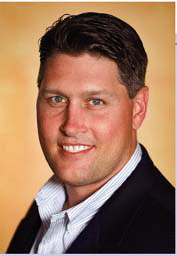Regarding his own company, Mr. Facteau said that once they are confident of the safety profile, they must have a value proposition for whom they call “the triangle of influence”—physicians, hospital administrators, and the Centers for Medicare and Medicaid Services (CMS) and other payers.
Explore This Issue
July 2007Physicians will have many questions ask about safety, effectiveness, training, patient benefit, reimbursement, and economic benefit. Hospital administrators will be interested in increasing revenue, reducing costs, and enhancing patient care. Payers will want to see, via clinical evidence, that the technology can have a positive societal impact.
It’s a tough business,” Mr. Facteau said. “It’s not like the 1980s when we had a lot of toys and physicians were just using technology because they could.”
Regarding payers, Mr. Facteau said a company must be aware of the multiple requirements of CMS and private payers in terms of reimbursement. “There is a significant amount of data and criteria we have to provide in order to get adequate reimbursement,” he said.
Ethics Issues
The final panelist was Donald C. Lanza, MD, a former ARS president who is an otolaryngologist with the Sinus & Nasal Institute of Florida in St. Petersburg. During the introduction of balloon sinuplasty, Dr. Lanza criticized the lack of safety and effectiveness data supplied to physicians. In the panel discussion, Dr. Lanza discussed ethics in general, and guidelines from the American Academy of Otolaryngology in particular. For example, the AAO Code of Ethics notes:
In all circumstances, the best interest of the patient must be foremost.
- The patient must be treated with competence, respect for dignity, and honesty. Confidences shall be kept private except as otherwise required by law.
- The physician must maintain proficiency and competence through continuing study, and be diligent in the administration of patient care.
- Fees must be commensurate with the service rendered and the ability of the patient to pay.
- The impaired physician must withdraw from that part of the practice which is affected by the impairment.
- Academy members should assist their colleagues in complying with these principles.
“With regard to commercial interest,” Dr. Lanza said, “physician commercial or financial interests should never be placed ahead of the welfare of patients. Conflicts of interest undermine the trust that patients place in their physician.” He further commented that financial interests should not influence prescribing patterns for drugs, devices, appliances, or treatment.
“Regarding patents, those issued after 1996 may not be lawfully enforced against physicians or their affiliated health care institution,” Dr. Lanza continued. “This law is consistent with established principles of medical ethics. Unrestricted access to medical knowledge is one of the defining characteristics of the medical and surgical profession.”

Leave a Reply